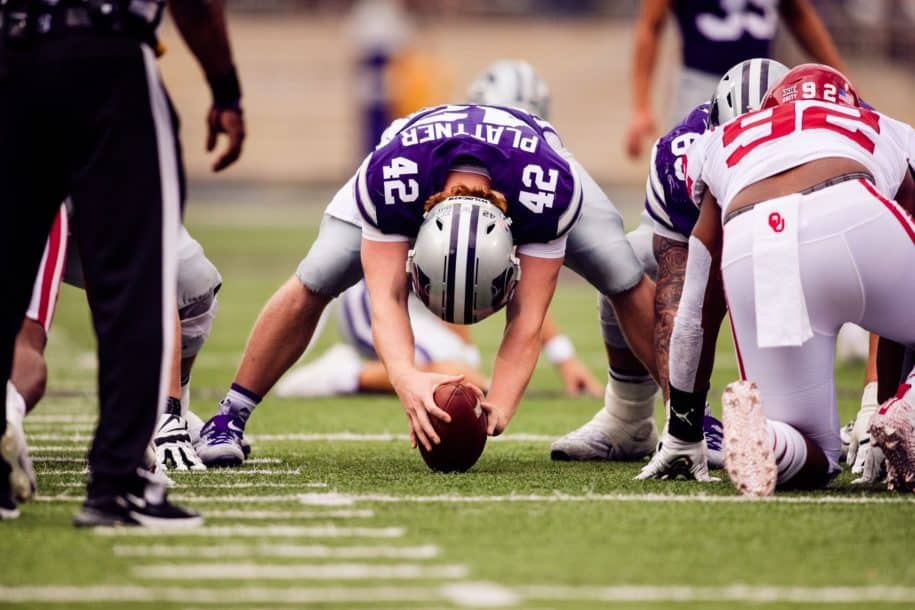In a previous life, I was an athlete. Everyday, I get a little further from those glory days. The only things I have left of my peak physical performance now are some memories, a few scars, a bum ankle, and a pinky finger trick that will turn the stomach of the queasy.
It wasn’t like I was some stud. There were plenty of my peers that were more physically gifted. I played basketball and baseball in high school and was good enough to earn a scholarship to continue playing baseball in junior college (Go Red Ravens!). I tell people that I was a pretty good junior college second baseman but a pretty horrible junior college shortstop. Despite being in the best shape of my life, there were just some physical limitations that I wasn’t able to overcome. Still, I’m glad it happened. I made a lot of great memories and met some awesome people that I don’t keep in touch with nearly enough… And, don’t tell my baseball coaches this, but I was able to get out pretty regularly to play my first Perry Maxwell course in Coffeyville too.
That experience was great but when my two years were finished, I was ready for the next chapter of my life. I gave up baseball despite having opportunities to continue playing. My playing career was always going to end because at some point, no one would want me anymore. There aren’t too many guys in the big leagues with my body type and physical attributes. Turning down offers to small four-year schools was a way of ending things on my terms and avoiding that pain of eventual, and inevitable, rejection.
At that point, I chose to pursue a different childhood dream: being a student at K-State. I always thought it was fate to follow in the family footsteps considering both my parents went to K-State, along with my older sister and several older cousins. We didn’t take vacations as a family when I was a kid; we went to K-State football games as a family. Going to K-State was somehow simultaneously my dream and an expectation.
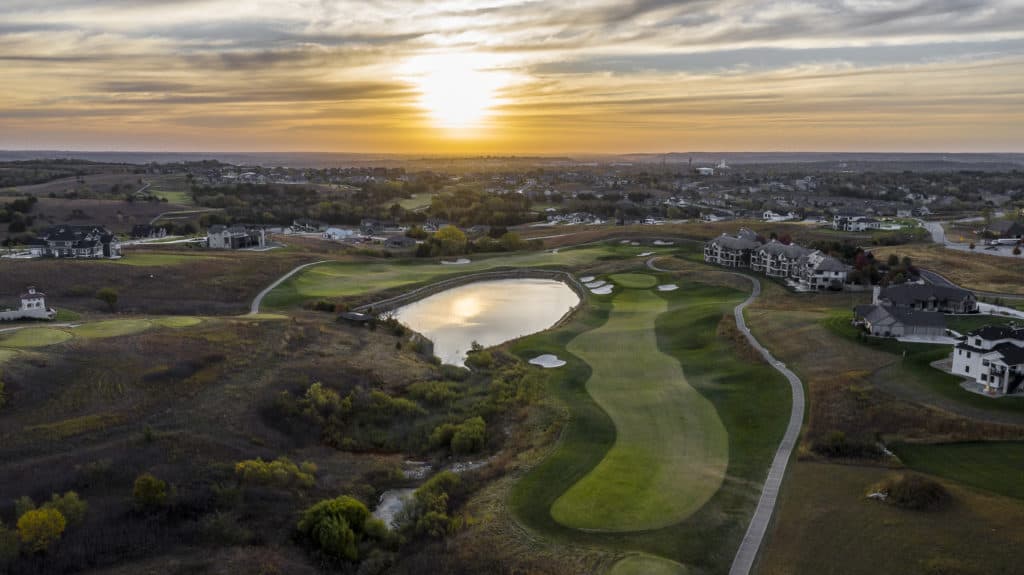
It’s hard to argue that I didn’t make the right choice to give up playing baseball when I did. I spent a lot of time hanging out with Kevin and his group of friends at K-State. He introduced me to my wife and we just celebrated our tenth anniversary. Kevin and I started playing golf while in Manhattan and that led us down the path of building whatever the Middle Pin is. The piece of paper that I earned hanging on my wall means so much more than just what I learned in the classroom. It was the start of the rest of my life.
Both experiences, as a college athlete and a regular student at K-State, shaped who I am today. And both wouldn’t have been possible without the support of people around me, from my parents and family to teammates and coaches to friends and coworkers to professors and kind-souled strangers at church. I still remember one couple in Coffeyville who would take me out for lunch every Sunday that I made it to church. It didn’t matter where we ate, I was just happy it wasn’t the cafeteria for a day. I’ve always wanted to be like those people who have done so much good in my life. And I think that we’ve found a great way to pass that on…
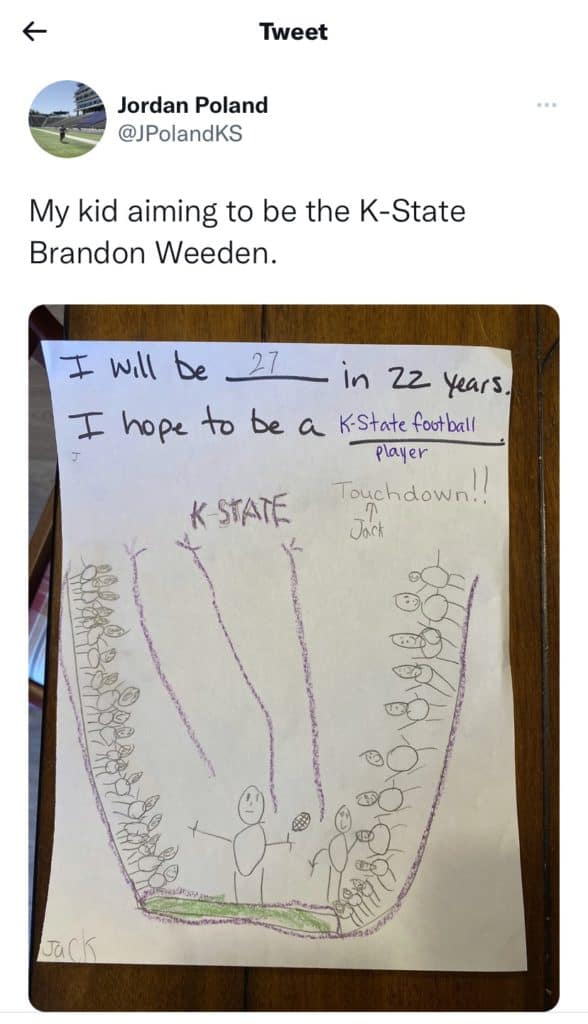
My oldest son drew me a picture that I posted on Twitter a couple months ago. In the picture, he said that he hoped to be a K-State football player when he grew up. I made a dumb dad joke about it and it got way more likes than anything I’ve posted about myself on that stupid app. It was getting likes from people I didn’t even know. And then, a notification popped up from one of these strangers who sent me a direct message:
“Hey Mr. Poland! I have been looking into your company, middle pin. The company looks pretty cool. I was wondering if you’d be interested in doing an NIL deal with a K-State Football player? I look forward to hearing from you.”
Interested? Is this dude serious? Obviously he doesn’t know me.
NIL is short for Name, Image, and Likeness. It means that today’s college athletes can earn compensation by using their name and platform to promote private businesses. It’s a way to allow college athletes to financially benefit from their performance on the field. This is the type of thing that used to get college athletes suspended. It is entirely new and while the system isn’t perfect, it is beneficial for the vast majority of student athletes who aren’t going to turn pro following their collegiate career.
I responded back, hoping that my excitement could be masked. I thanked him for the compliments, informed him that the “Mr.” title is reserved for my late grandpa, let him know that the Middle Pin is still a small company without many resources, but that I appreciated his hustle to go “get his” in this new world of college athletics. I’d have been on the same hustle if this was allowed when I was in junior college.
That’s how we met Randen Plattner, long-snapping specialist for the Kansas State Wildcats.
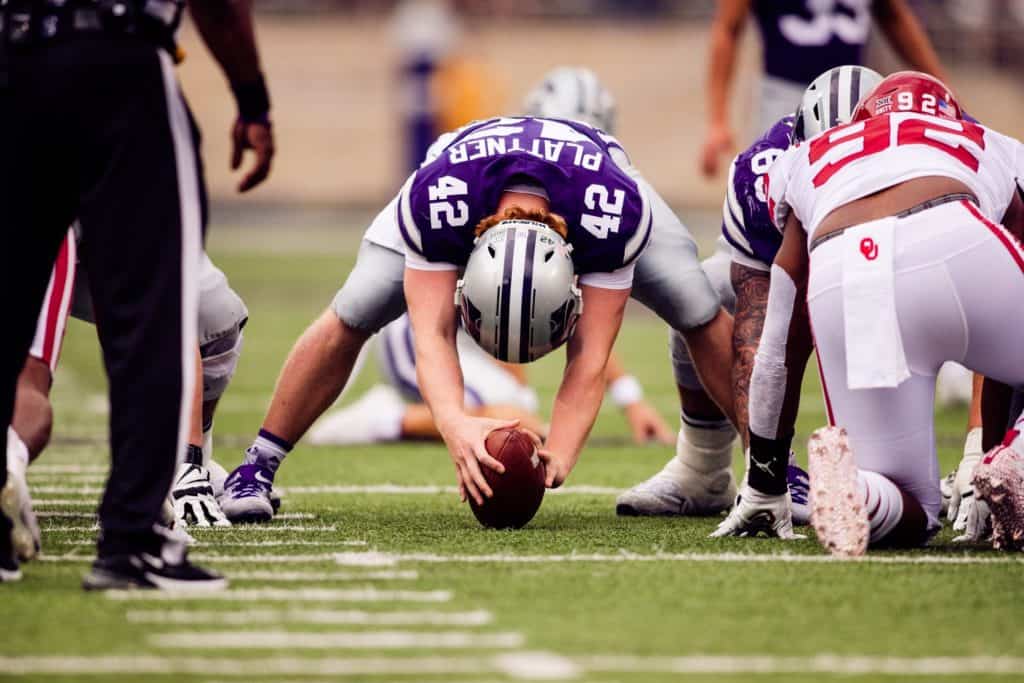
None of us really knew how this NIL thing works, but I really liked the idea for a couple reasons.
For one, it’s helping out a college kid. I view it as a way to pay it forward for all of those people who helped me get through those college years. We may not be in a position to pay him hundreds or thousands or hundreds of thousands of dollars like some college athletes are making now, but being able to pick up the tab at dinner or pay for a round of golf is something that we want to do. Important people in our lives did that for us. Now, it’s our turn.
For two, and I’m just guessing here but, I don’t think there is much crossover between our followers and those of a twenty-three year old long-snapper. We’re in completely different circles because of our different places in life. Where those circles overlap is the game of golf. I’ve always been fascinated how sports bring different groups of people together and this was yet another example.
And lastly, and I mean this with the utmost respect for Randen and his chosen position, but having a deal with a long-snapper is kind of perfect. I don’t follow the roster like I used to as a kid, but I literally didn’t know who Randen was before he reached out. And he’s snapped in every game I’ve watched in person or on TV for the last five years. It’s perfect because he isn’t the star football player, or a star golfer for that matter either. It’s perfect because he’s just like us: a pretty normal dude who just likes to play golf (except for he’s way younger, way bigger, way stronger, and way faster).
Of course, it helps that he reached out to me; I’m literally wearing a K-State pullover as I type this. It’s hard not to get nostalgic about K-State football when it’s played such a huge role in my life over the years. How could we say no?
Over the next several months, we’re going to be doing some things with Randen on and off the golf course as he gets some time. That will be increasingly hard to come by in the fall as he leads the Wildcats to another Big XII title and our school’s first national championship (no pressure Randen). We hope you enjoy our interview with Randen and become as big of a fan of him as we have.
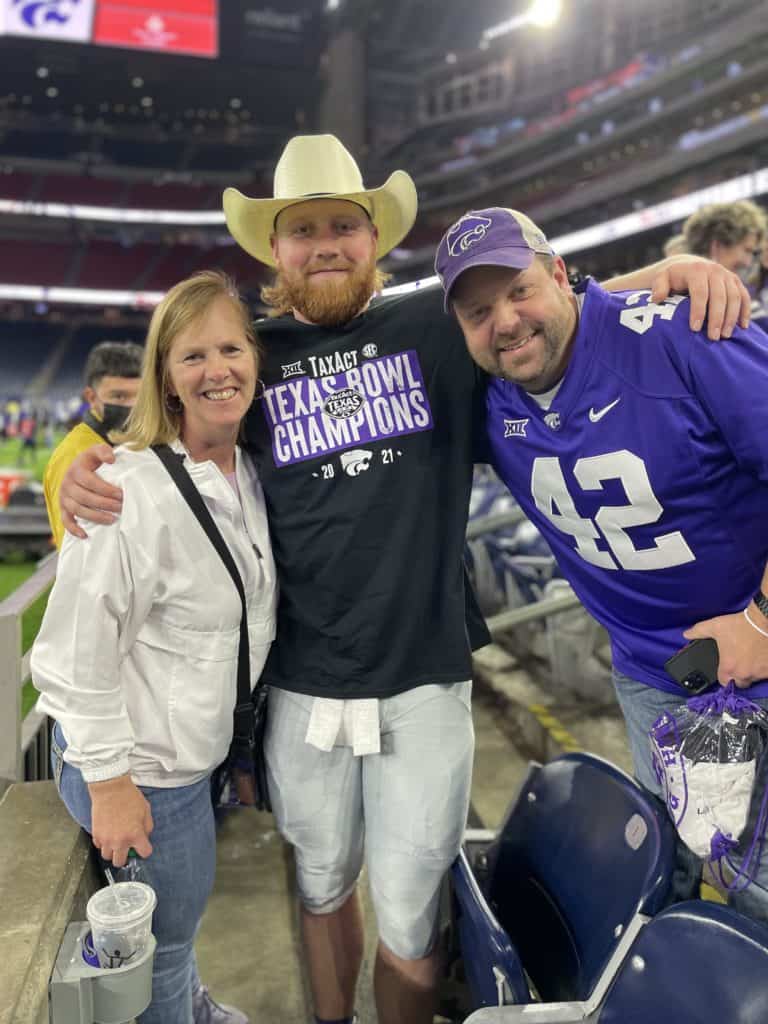
JAP: First off, tell us a little bit about you. Where are you from? How’d you end up at K-State? What’s your major? What do you want to be and do when you grow up?
RP: I am from Kansas City, Missouri, born and raised. I went to a 6A high school where I graduated with about 500 people in my class. About my junior year of high school my head coach put the idea of playing college football in my head. I hadn’t put a ton of thought into my future at that point in my life. So, from then on I made the commitment to myself to do what I could to give it a shot. I didn’t want to have any regrets, any second thought of I should’ve tried harder to play college football. I went to work snapping all the time, going to camps all around the Midwest. When I attended the KSU specialist camp, I performed better than I ever had to date. There was something special about me being on campus and the atmosphere I experienced, I wanted to be a part of it. Now, I’m here studying mechanical engineering with a minor in leadership studies and starting my MBA this summer. The end goal after I get my degrees is to manage engineers in some way. I always look to use leadership skills I have learned in football and in life in the future.
JAP: Why long-snapping? Was this something that you always wanted to do or just kind of fell into?
RP: This is actually kind of a funny story. The summer going into my freshman year of high school we were at football camp and starting to do special teams drills. The big guys were going to do linemen stuff, the small fast guys were going to do a running drill. The middle sized guys (where I fit in) were also doing some running drills that didn’t look very fun. Then the coach said and if you want to try long snapping come over here. Obviously you can see which group I chose. Long story short I started long snapping to avoid running.
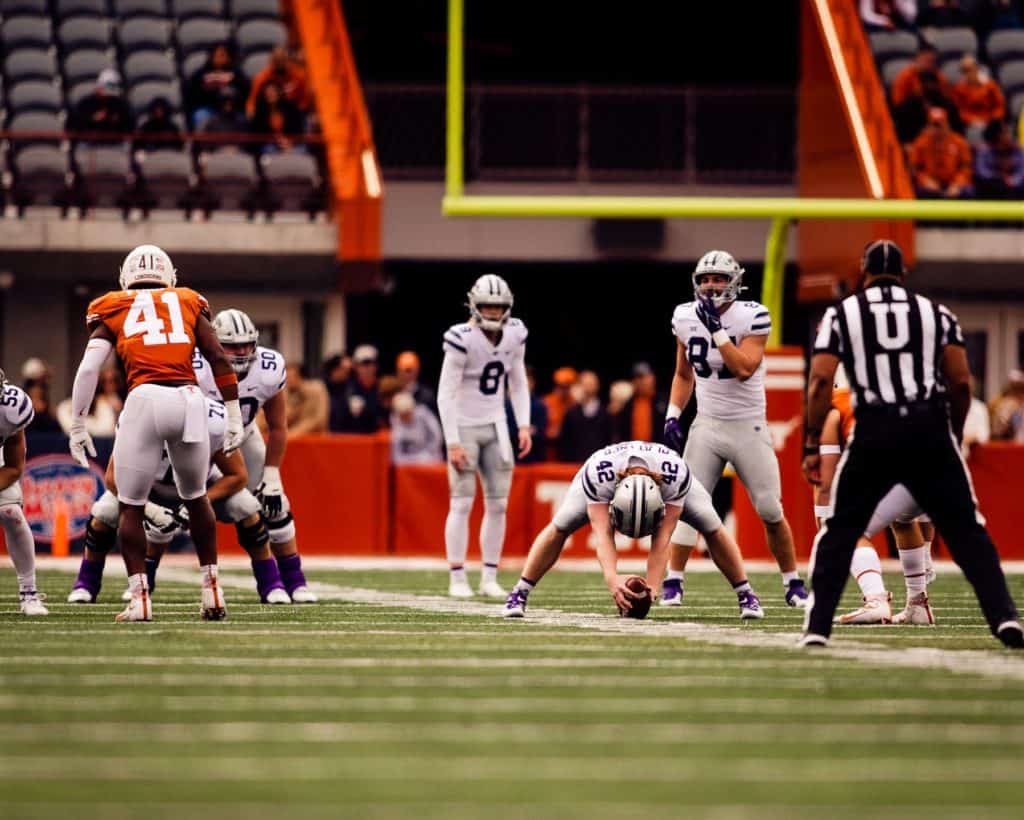
JAP: Ha! Sounds like a wise choice! What does your football “grind” look like? You only play twelve or so games every year but there is a lot more that goes into it outside of Saturdays in the fall.
RP: That is a good question. The part of the season that everyone knows about is the actual season but man there is a lot more that goes into it. It depends on what section of the off-season we are discussing. One of my favorite parts of the off-season is summer. A typical weekday looks like: 6:00 am lift followed by breakfast, then we come back to the complex for meetings, team run, captain’s practice, and dinner. Luckily, we do have a lot of free time in the summer. A lot of free time is attributed to recovery, hanging out with teammates, some people have jobs to work, and just being as normal of a college student as you would expect. The rest of the week is similar but there are some discrepancies with scheduling and stuff.
JAP: I always get goosebumps when the players run out on the field that first game every season. It’s such a long off-season and the anticipation is always too much. What’s it like running out of that tunnel on gameday?
RP: Oh, the tunnel. I do enjoy the tunnel. So as a specialist, we are typically on the field warming up hitting punts and field goals as the team is called out of the tunnel. That is a time for us to get adjusted to the full stadium. My thought process is it will never be louder in the stadium when we are on the field when the team runs out.
JAP: Damn, I forgot! You’re an early-out guy so you’re already out there practicing… Sorry to rub the tunnel in. You’ll still get to do the tunnel on Senior Day so you’ve got that going for you… Who are some of the people in your life who helped you get here? Give some people a shoutout.
RP: Oh man, there are so many people I could thank. First and foremost would be my family. My parents, Rodney and Debi Plattner, have been there for me every single step of the way. You couldn’t ask for more supportive parents. If I ever wanted to try a new sport or needed a new piece of equipment they were always there. And not only supporting me but pushing me in all aspects of life. I was pushed to be my best in school, sports, and just general life skills. Next, my sister. She is four years older than me and gave me the best road map to life you could ask for. Watching her make great decisions that I would later attempt to repeat and then watching her make poor decisions that I would later attempt to avoid. Also just having her as a mentor was amazing. I would also like to thank my high school head football coach, as a matter of fact all the coaches that have ever coached me in any sport. I think I learned something about life through sports in all the years I have played. Bill Snyder and his staff. Coach Klieman and his staff. Kolin Hayes, initially taught me how to snap. Corey Adams, a former KSU snapper and coach that has helped along the way. Sean Snyder, Stanton Weber, Will Burnham, all coaches that have poured into me as a man and football player. A special thank you to all the support staff that has helped me through the years. Those people work so hard just to take care of us and are very underappreciated, both full time and student assistants.
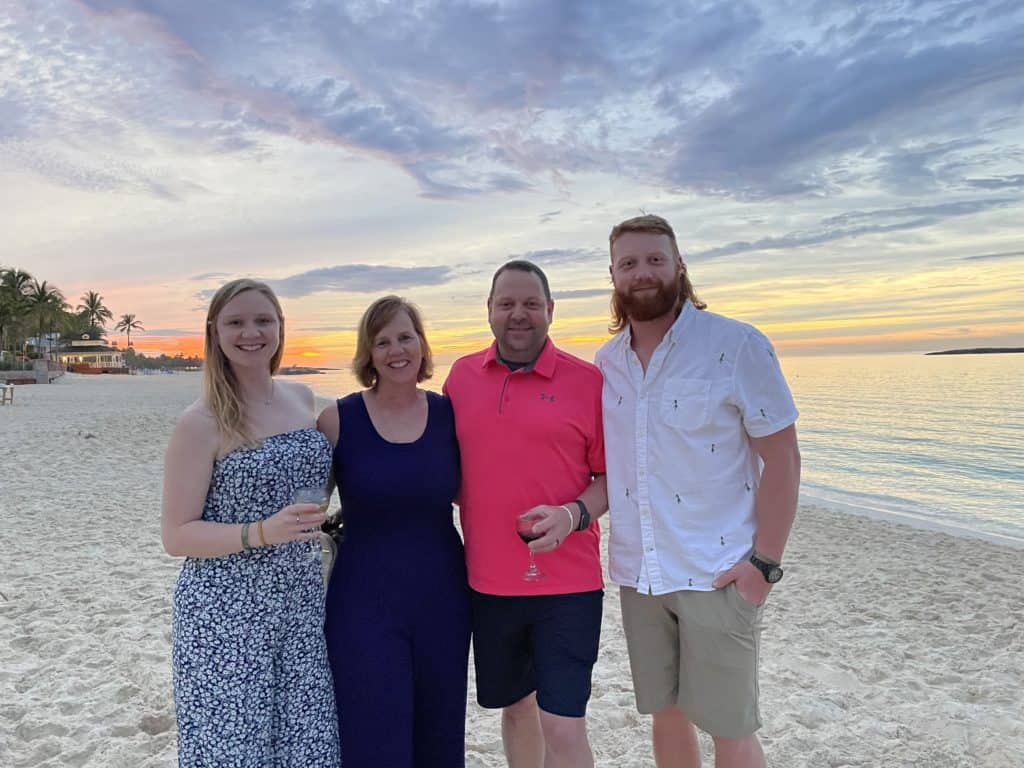
JAP: I could ask K-State football questions all day, but we’re a golf company so I should probably ask you some questions about that. When did you start playing golf? Where did you grow up playing? Where do you play now? How often do you get out?
RP: I started playing my freshman year of high school. I thought it was very mature of me to step away from baseball and try out golf. My dad is not a golfer and rarely ever enjoyed it so you could call me a first generation golfer. Throughout high school I played at all the local courses but most often one called Tiffany Greens. I also had a job there all throughout high school. Nowadays, I play at Stagg Hill and Colbert Hills when I can. Depending on the week, I will be able to play a couple days a week. There are spells in the busy seasons of football that I wont touch a club for around three or four weeks.
JAP: You mentioned pretty quickly in our first convo on Twitter that you have a hole in one. I still don’t, so this annoys me greatly, but go ahead and tell us that story…
RP: April 25th, 2021, Hole # 2, 167 yards at Stagg Hill Golf Club. I was just coming off of a bogey on hole one, like a normal start to a golf round. I bladed my 9-iron about as bad as you can blade a golf shot and it still gets off the ground. I see it goes straight so I wasn’t that mad about it. I assumed it flew way over the green but couldn’t see the ball all the way down. After looking around behind the green for about three minutes, I was getting a little frustrated and was going to check in front of the green when I glanced in the hole on a whim. Luckily I hit one of my favorite balls ever.
JAP: Sick! Do you feel a little robbed that you didn’t get to see it go in from the tee box?
RP: Yes and no. I think the emotions would have hit differently and it was neat that it was a true surprise looking over the hole.
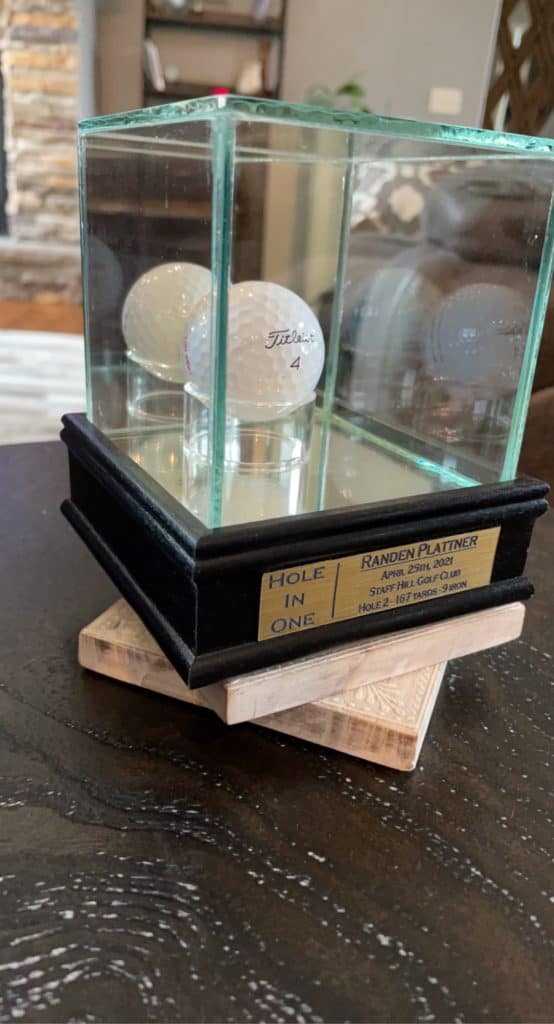
JAP: We’ve played nine holes together so far and I’ve got some thoughts on your game but, what are your thoughts about your game? What are your strengths? What areas do you want to improve?
RP: I think my game goes in waves. When I play a lot things improve as time goes on but very rarely on any given day do all the parts of my game work like they should. I know my biggest weakness is consistency off the tee box. I am not a super long ball hitter compared to some of my friends, contrary to what you would think with my size. Probably about two or three times a round, a hole gets screwed up because of my tee shot. For the most part, the rest of my game is solidly decent. I think my strength is putting. I’m not going to sink a ton of long putts but rarely, if ever, will I three-putt, which I pride myself upon. I like chipping and have some good finesse at times but I blade chips just like any other golfers.
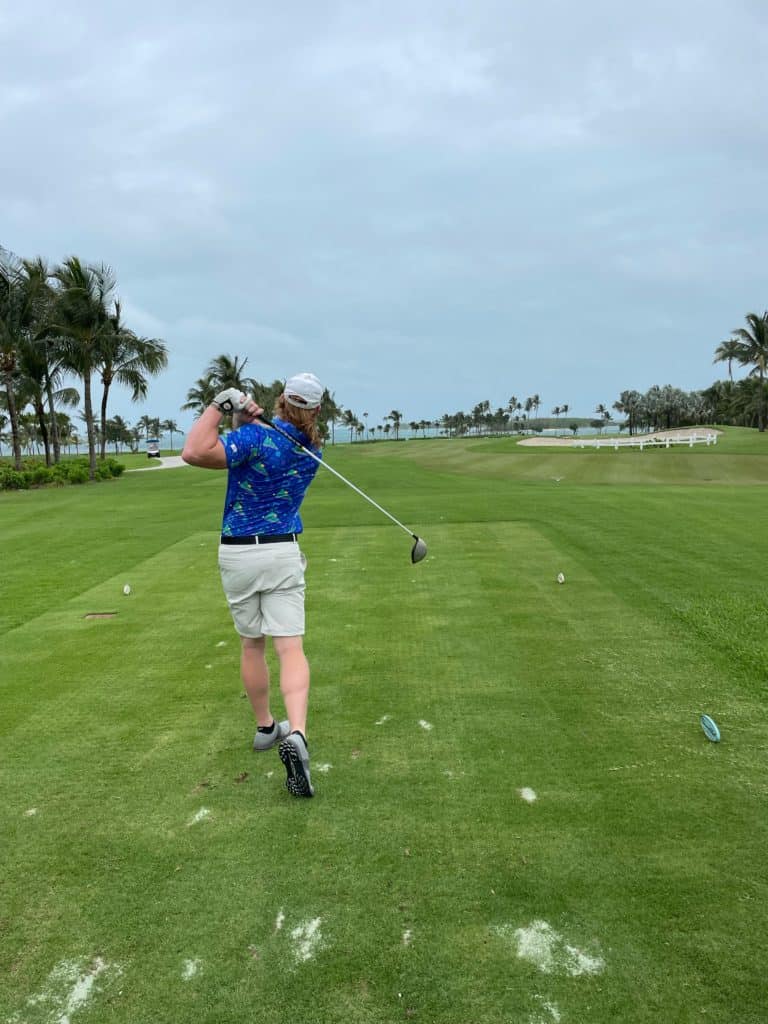
JAP: Bucket-list time: name the two places that you most want to play, meaning one place you most want to play football and one place you most want to play golf?
RP: I have played in some really really neat football stadiums even in college. One that I would like to play at is Arrowhead Stadium in Kansas City. I grew up going to Chief games there, my family knows how to tailgate and would want nothing more than a good tailgate at Arrowhead to watch their son play. My bucket list golf course is definitely Augusta. I wouldn’t need to play there. I really just want to visit and walk the grounds. A realistic place I could play is the par-3 course that Jack Nicklaus designed in Branson, Missouri.
JAP: Well, buddy you’re in luck because we’ve got some connections and can get you on at Augusta. Know a lot of people that live there and it’s surprisingly affordable… Oh, you meant Augusta National? Nevermind…
Appreciate Randen taking the time to answer some questions! Give him a follow on social media (@randen_plattner on Twitter and @randop101on Instagram/TikTok) as he’ll be doing some giveaways of tMP stuff this summer. Thanks Randen and Go Cats!
Until Next Time,
tMP

